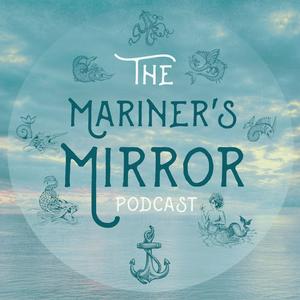Hubert Sagnières studies, collects, and publishes works on early explorers and has himself completed numerous explorations: In 2024, he piloted a single-engine plane on a circumnavigation of the globe, honoring the centenary of the first around-the-world flight in 1924 by the Douglas “Chicago” aircraft. He has traveled in the Indonesian archipelago, visiting remote islands and has spent time with the Dayak tribes of Borneo and the Mentawai people of Siberut Island. He has completed over 20 expeditions to the Canadian Arctic, many in very harsh winter conditions and has explored many remote Arctic regions such as the shores of Baffin Island, Ellesmere Island, and Axel Heiberg Island. In this episode we discuss Hubert's latest book 'For Glory, Not Gold: Expeditions Through Arctic Lands 1818-1876', a remarkable volume which chronicles ten major Arctic expeditions undertaken between 1818 and 1875, following the bold journeys of explorers from the United States, England, Scotland, Ireland, and France. These seafaring pioneers ventured into the ice and the unknown in pursuit of the elusive Northwest Passage. Drawing from the original journals and travel narratives of figures such as Sir Edward Parry, Sir John Ross, Sir John Franklin, Joseph René Bellot, John Rae, Sir Francis Leopold McClintock, Elisha Kent Kane, Charles Francis Hall, and Sir George Nares—along with the legendary voyage of the HMS Investigator—the book offers an intimate, firsthand look at their extraordinary quests. It features illustrations, engravings, maps, and rare documents selected from the author’s own collection of historic works. More than a record of exploration, this volume reminds us that beyond the commercial ambitions tied to northern trade routes, the Arctic and the North Pole have long stirred the human imagination—calling forth the daring nineteenth-century expeditions of explorers driven by an unquenchable urge to discover new worlds. Hosted on Acast. See acast.com/privacy for more information.


